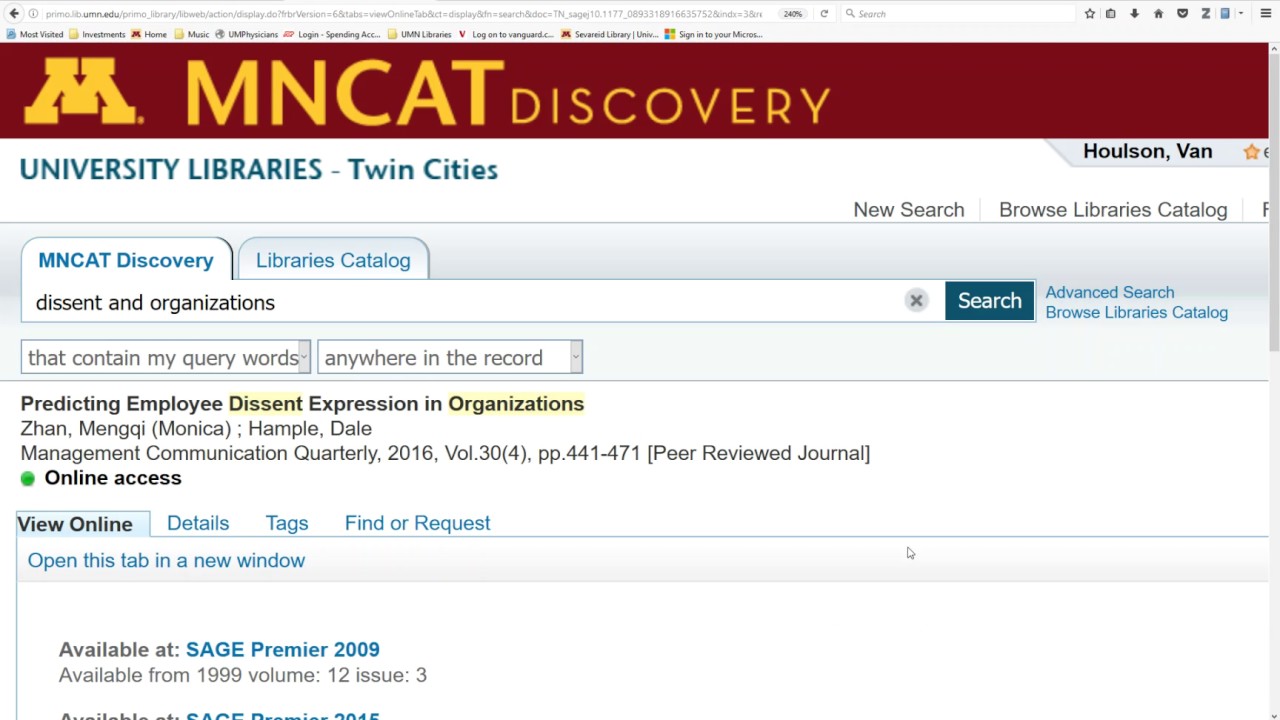Mncat Discovery - A New Library Enhanced Discovery Tool
The world of research contains a variety of information sources, including books, articles, conference papers, and references. Experienced researchers and librarians know that choosing where to look first makes it easier to find the sources they need. Libraries facilitate the research process by providing access to various databases.
This is why MNCAT Discovery: A New LibraryEnhance Discovery Tool was developed. This is an advanced database that indexes most of the licensed resources and is a wide array selection of free content that is normally searched through Google Scholar or Internet search engines.
What Is MNCAT Discovery?

Introducing MNCAT Discovery and Our New Website
MNCAT Discovery is a new search tool for searching library books and other items, as well as articles and related materials. Simply put, it combines a traditional "library catalog" with a large search for articles in journals, magazines, and newspapers interdisciplinarily. Most databases licensed by the library are restricted to specific areas. MNCAT Discovery provides more results, indexes most of the licensed resources, and provides a selection of free content.
In the 2010 MNCAT Plus / MNCAT Classic Library Survey, the overwhelming majority of respondents showed that they were interested in a wide range of searches beyond their own physical collection. Unlike most databases that are designed to focus on a particular area or target audience, MNCAT Discovery is designed to include as many possibilities as possible.
The goal of MNCAT Discovery is to provide users with a useful set of starting points with minimal "confusion". MNCAT Discovery is designed to rank results by those that are most likely to be useful, and includes "facets" that allow you to narrow down your results to find the resources that best suit your current research needs. It has been.
What Information Is Available In MNCAT Discovery?
As for the results, the more you have doesn't necessarily mean better. MNCAT Discovery uses a robust relevance ranking algorithm combined with powerful facets to help users focus on the most appropriate resources to meet their current research needs. MNCAT Discovery searches hundreds of millions of articles at once, including:
- electronic and printed books
- electronic and printed Journals, magazines, and newspapers
- Articles (peer-reviewed as well as reviews, editorials, and letters to the editor)
- Music, videos, DVDs
- Archival, Maps, and digital collections
- Research datasets and Government documents
- Resources not in the collections (may access by
- selecting “Expand beyond library collections”)
How To Use MNCAT Discovery?

MNCAT Discovery Dissent Search
MNCAT Discovery searches millions of items including books at the University of Minnesota Libraries and articles from various journals, magazines, and newspapers including peer-reviewed or scholarly articles.
Like any other search engine platform, type in one or more meaningful keywords about the topic you want to research and click the Search button. Use quotes to search by phrase. Look at the results and narrow down as necessary using the many options on the left and top of the results page.
Once you find what you are searching for, click “View It” to view it online. Click “Get It” to have it printed. You may write down the library and call number and go get it or request to have it sent to your closest library (24 hour turnaround time).
You can easily search with MNCAT Discovery. Simply enter one or more of the words you're looking for and click the Search button. You can search by keyword, subject, title, author, ISBN, phone number, etc. to get the results of finding matching terms in any field or in a particular field.
Advanced Search Feature In MNCAT Discovery
Advanced search provides the ability to refine your search so you can get more specific results. This is useful if you know exactly what you are looking for. You can use the start and end dates to limit a particular release year. For example, to search for Vogue magazines published between 1920 and 1930, simply enter the date range.
The specific Day and Month value inputs are optional. Moreover, if you're only looking for items published after a certain date, you can enter a Start Date and leave the End Date value blank. Likely, you can search for all items published before a certain date by entering an End Date and leaving the Start Date value blank. If you want to limit a search to a single year, you may enter the year in both Start Date and End Date. The Advanced Search in the Libraries Catalog tab offers additional features for making your searches more precise, specific and enabling you to get results that are even more targeted. Use it if you know the exact information you are looking for.
Do I Need To Log In?
You can search MNCAT Discovery and the library catalog without logging in, but if you are searching for MNCAT Discovery off-campus, you will need to log in. Some databases enabled by MNCAT Discovery restrict access to authenticated members of the university community. If you are off-campus and not logged in, you will not see the results for these databases. By logging in, you can also request articles, view the full text of licensed online resources, save the results to Eshelf, and personalize MNCAT Discovery to perform your work. If you search only the library catalog, the search results will be the same regardless of whether you are logged in or not.
Conclusion
The MNCAT Discovery database typically indexes a particular subject area or a particular purpose document. While helpful--even vital--for focused research, choosing among the hundreds of databases licensed by University Libraries is overwhelming for those that are less familiar with the process, and even for specialists in one field who need to branch into something that is new to them. Thus, we hope that this article was able to help you to understand MNCAT Discovery better.